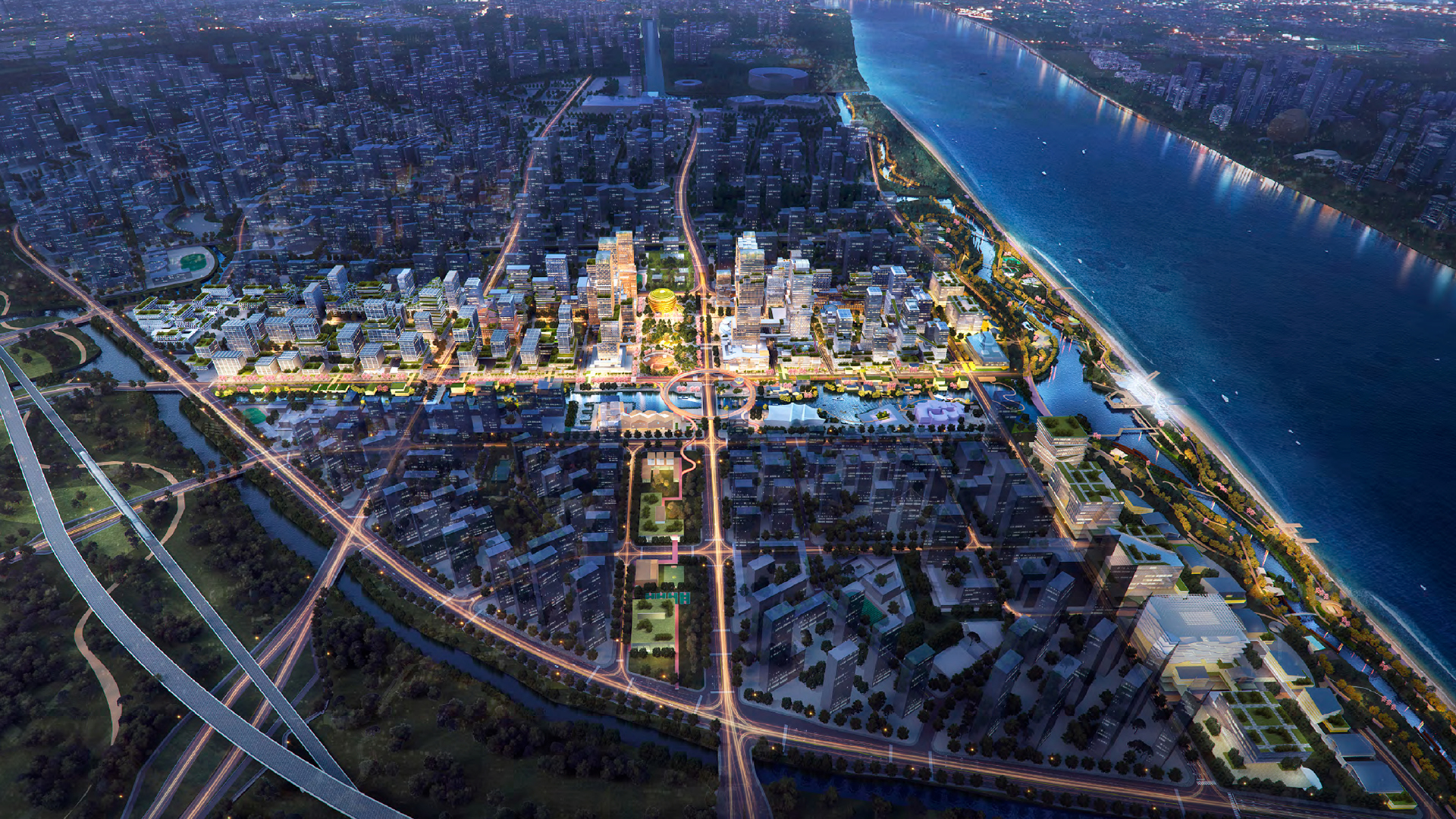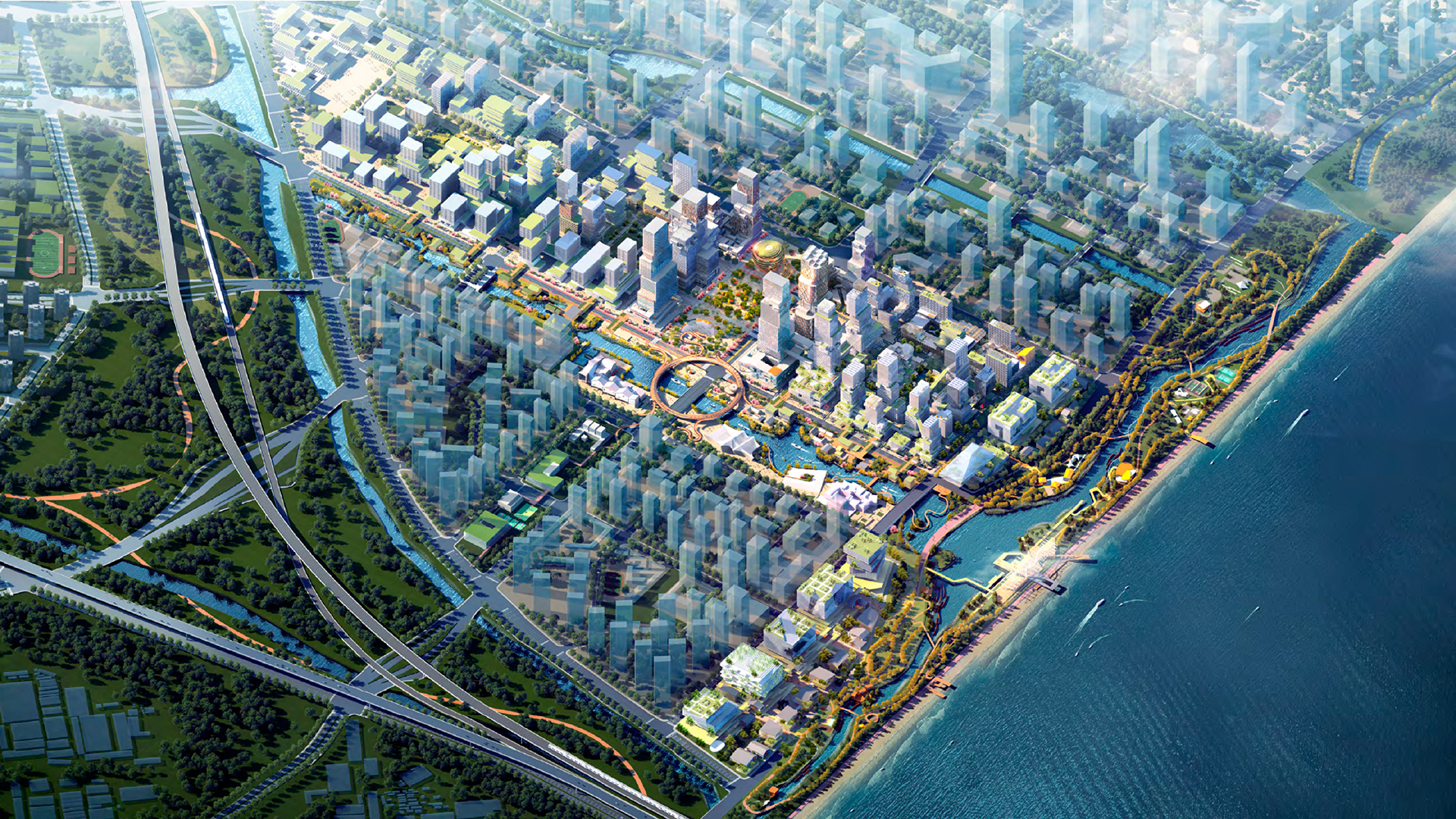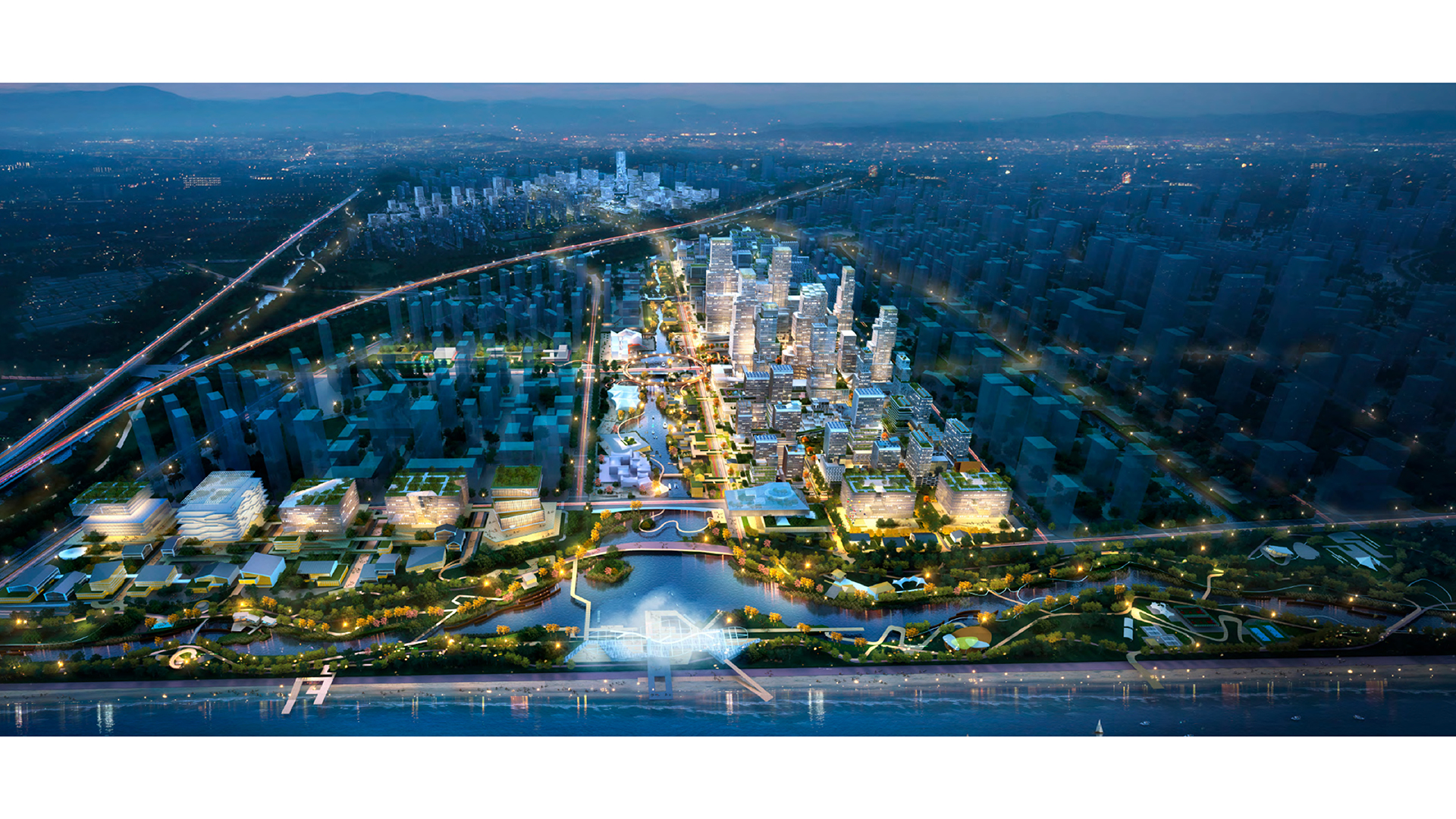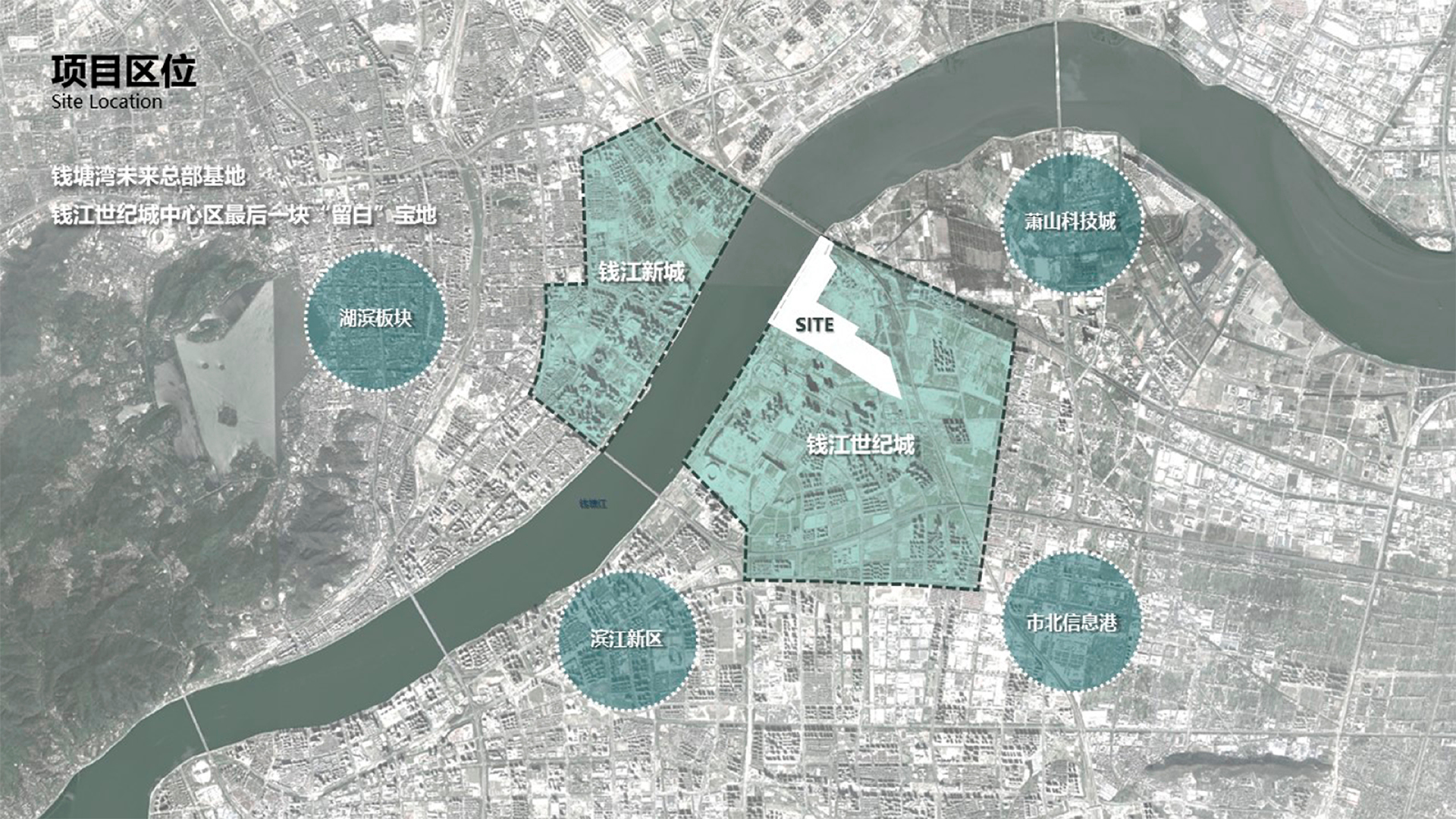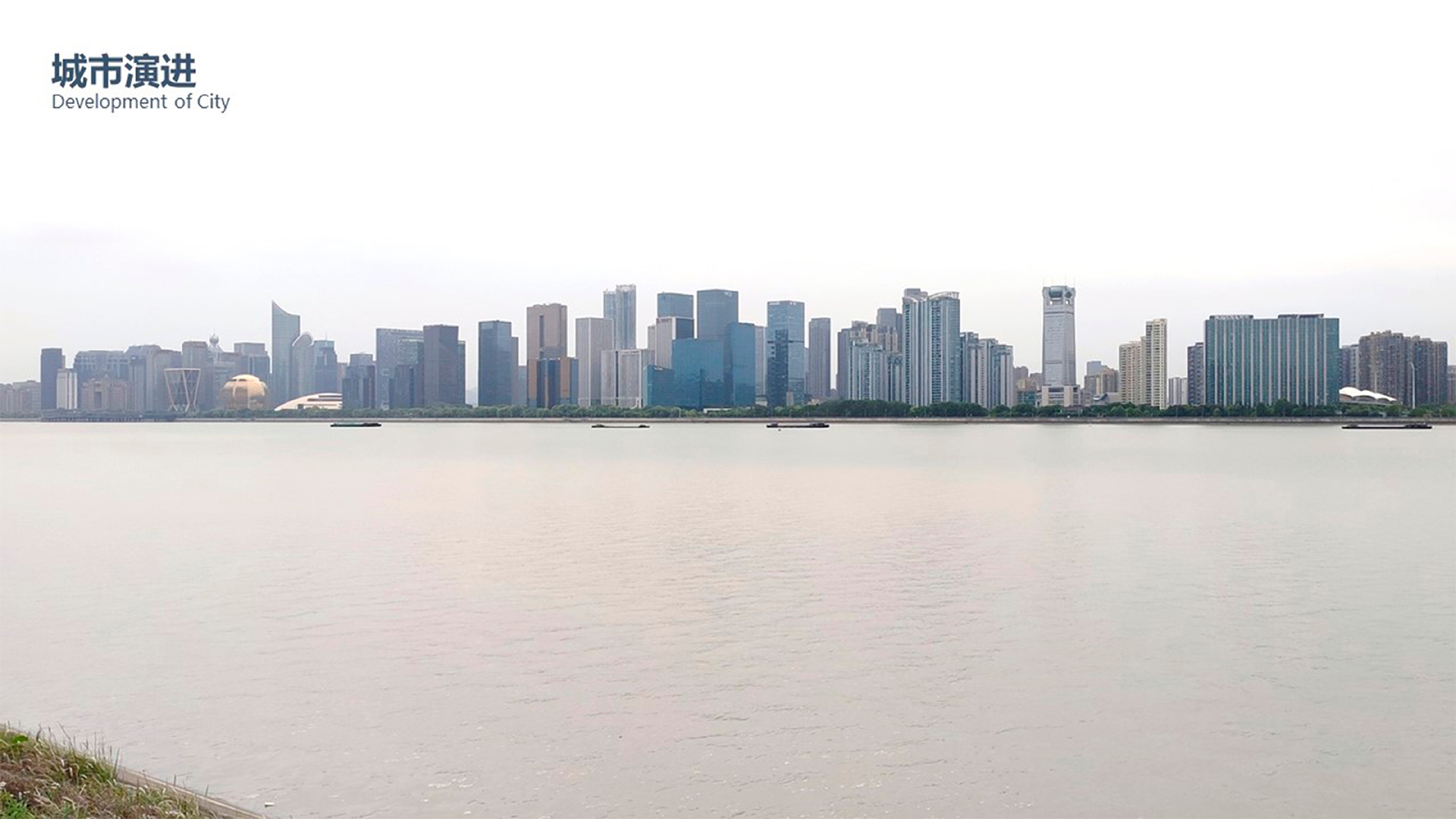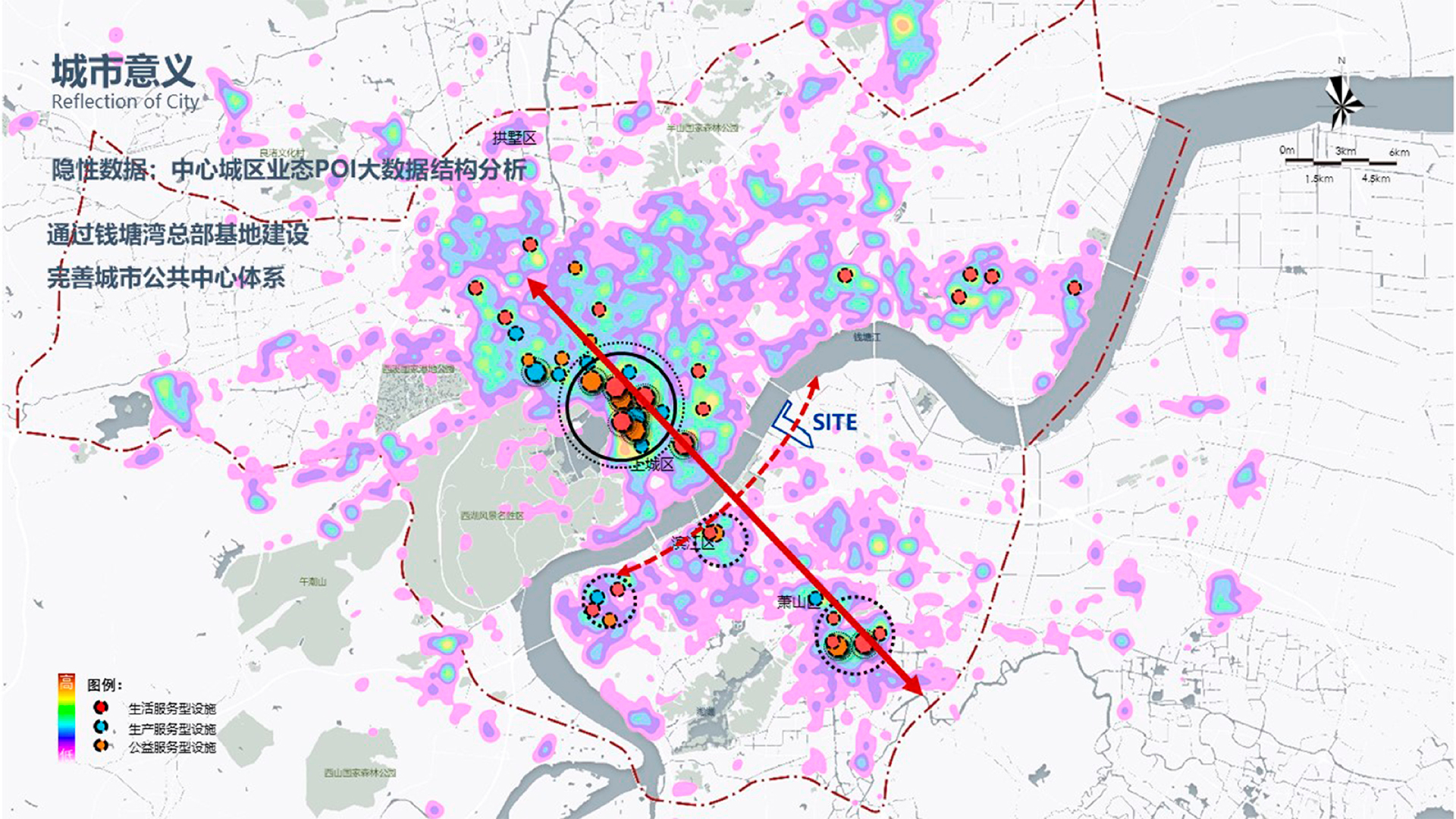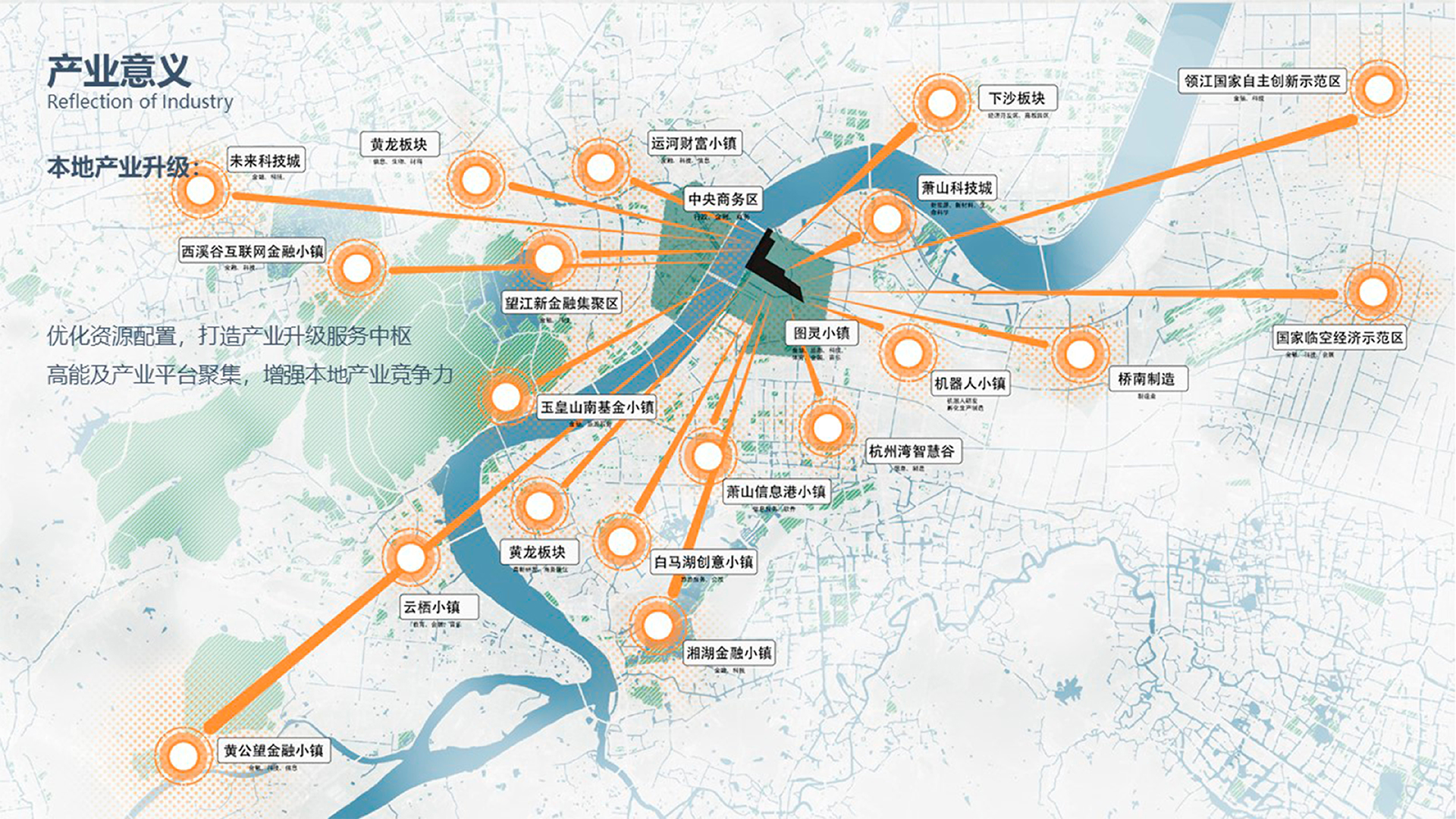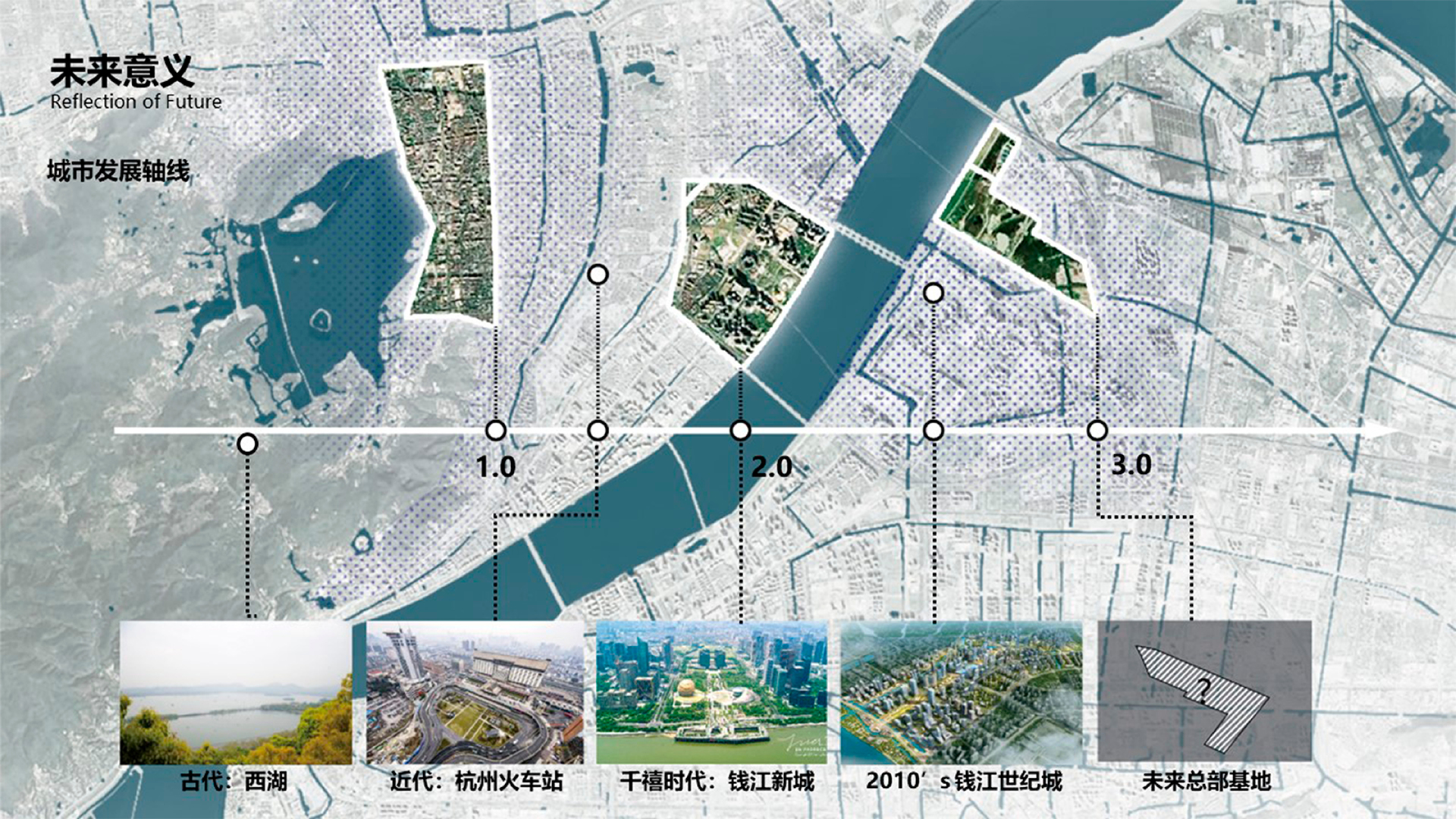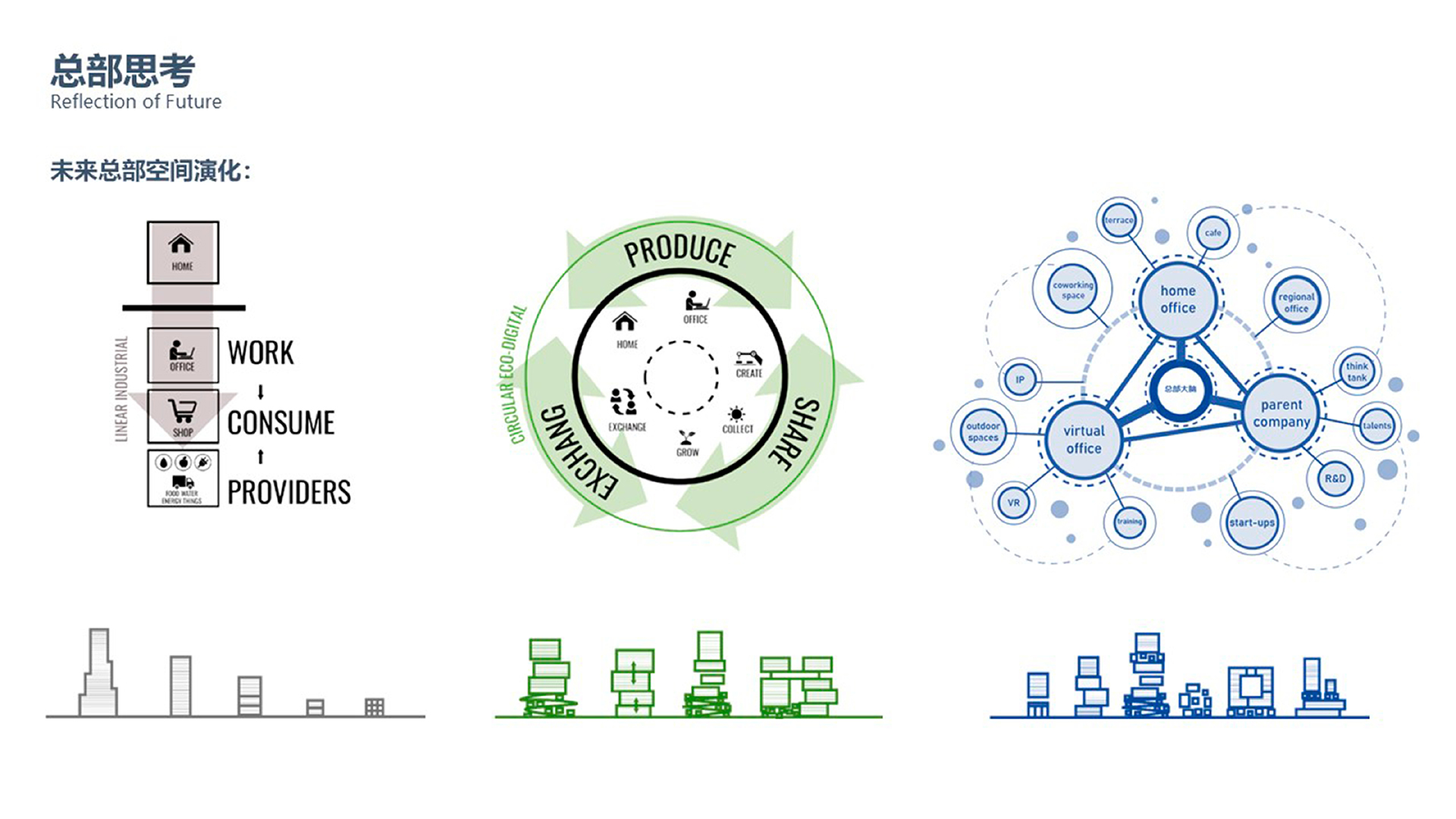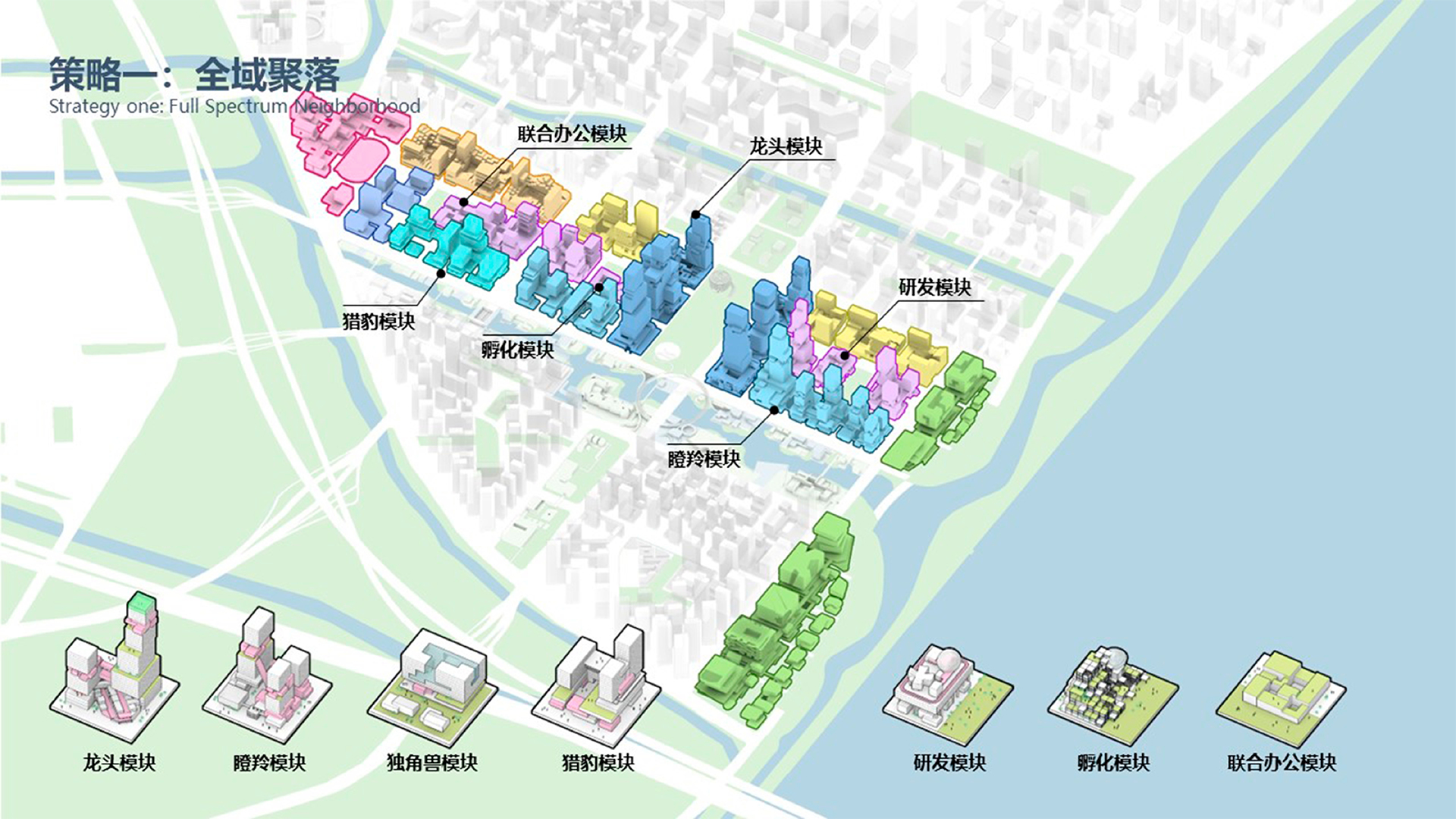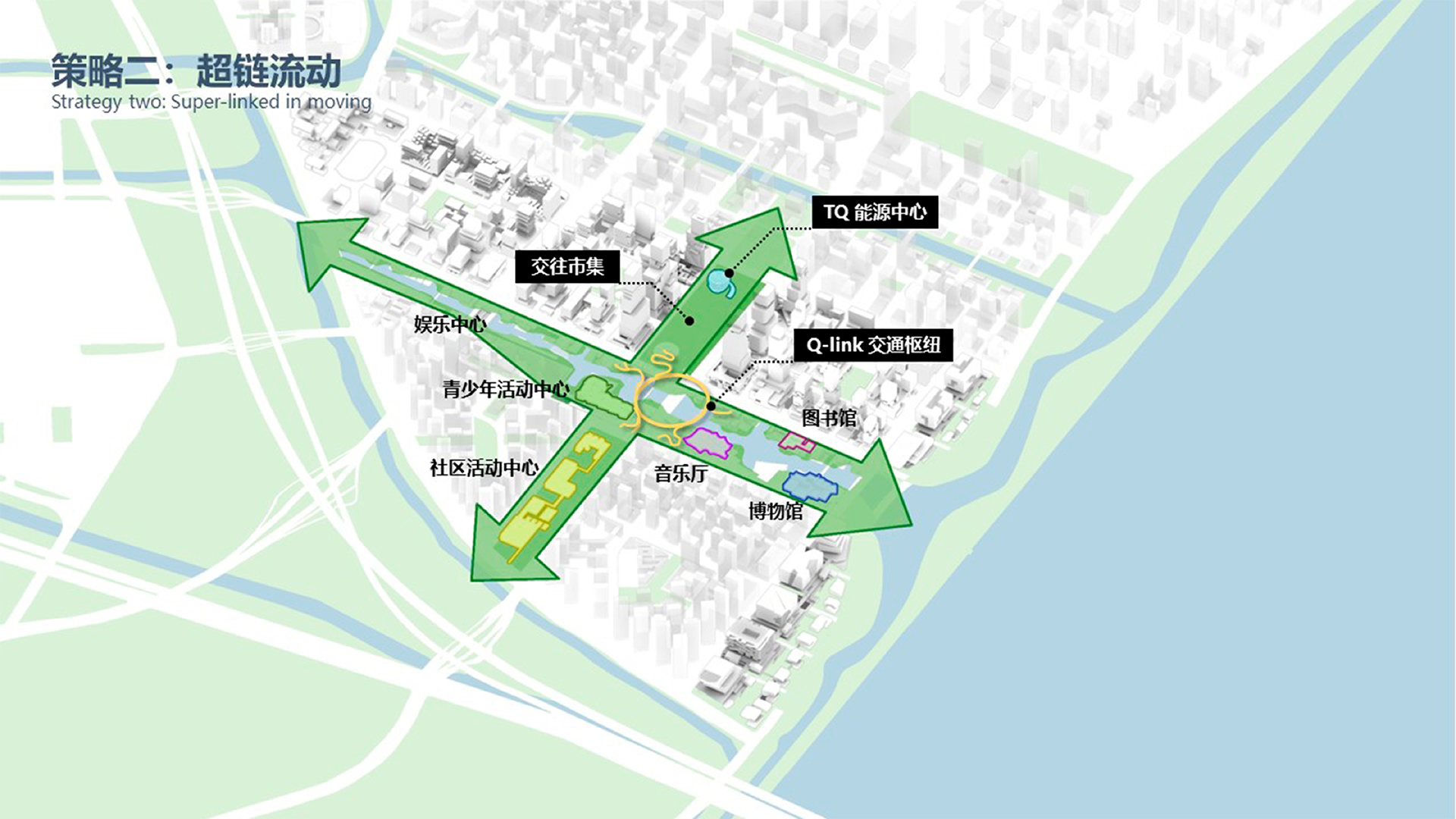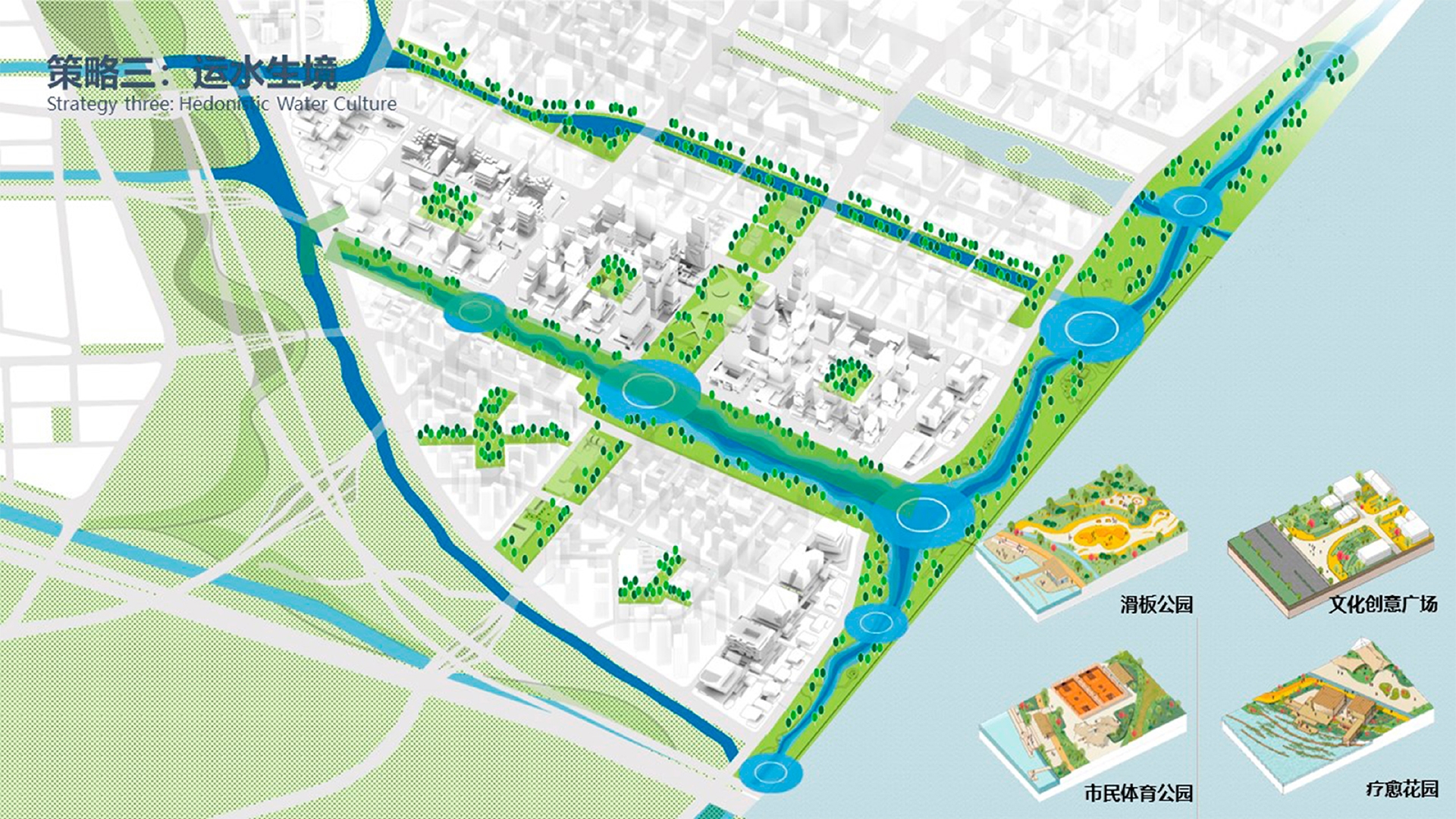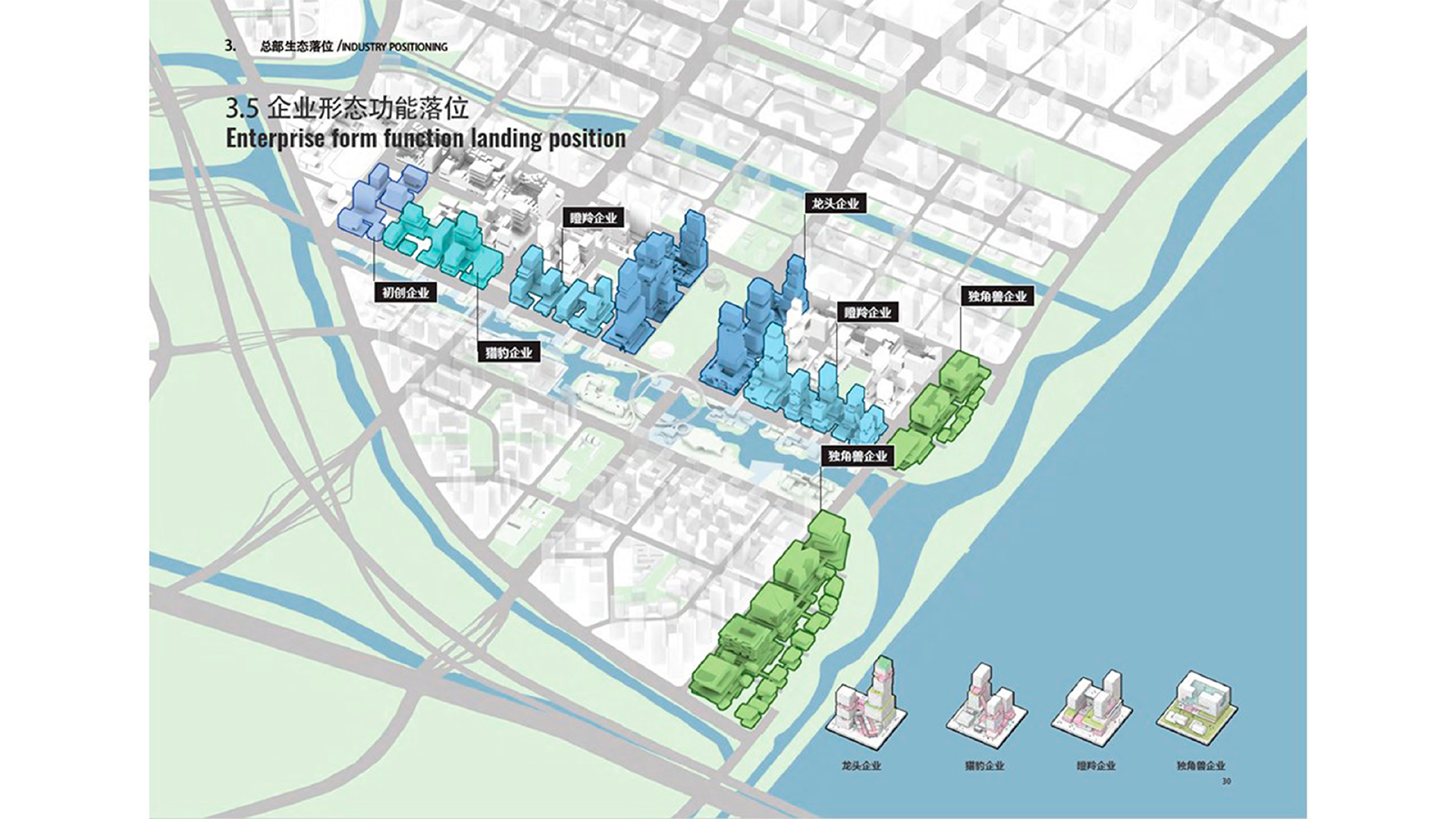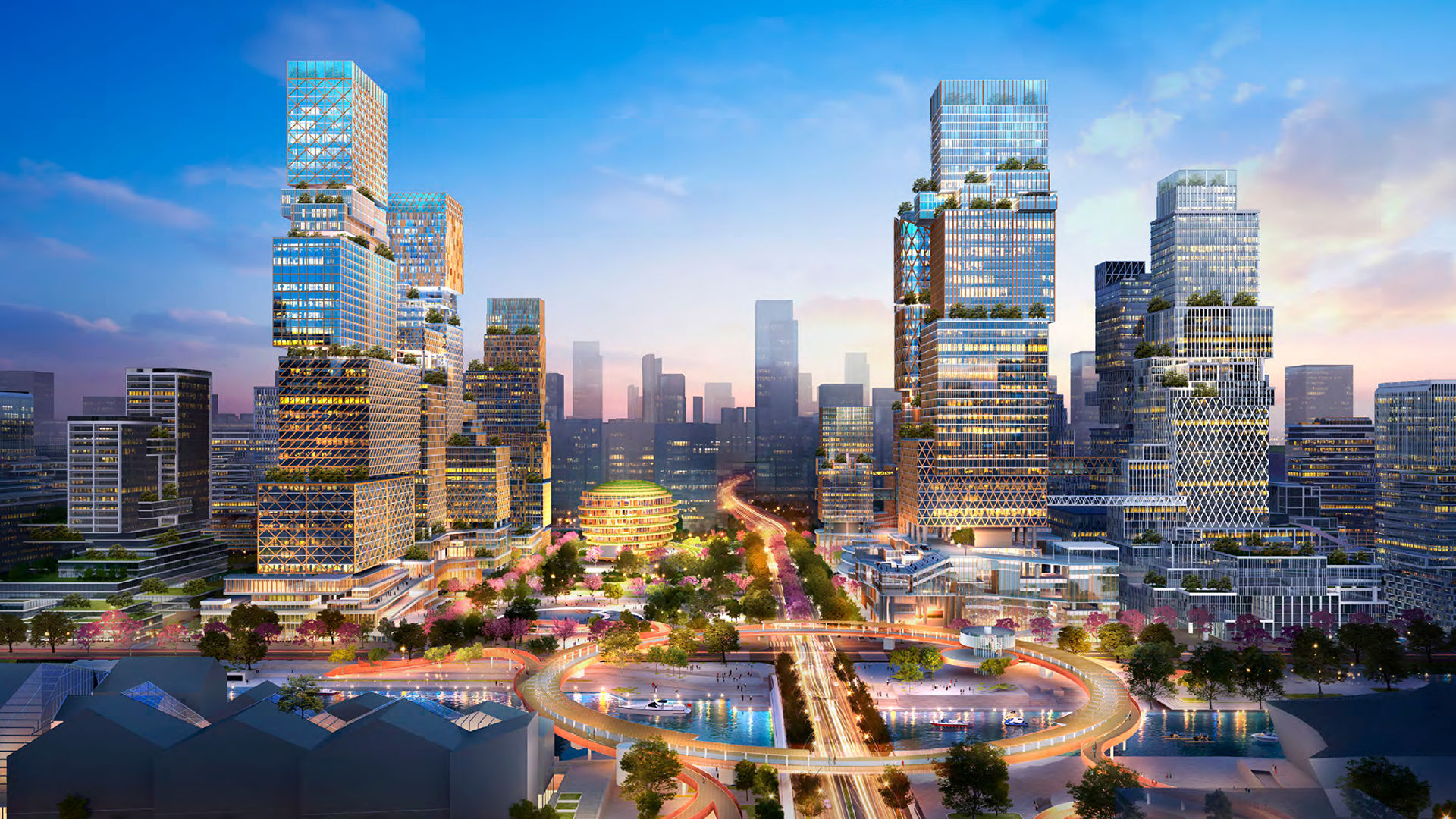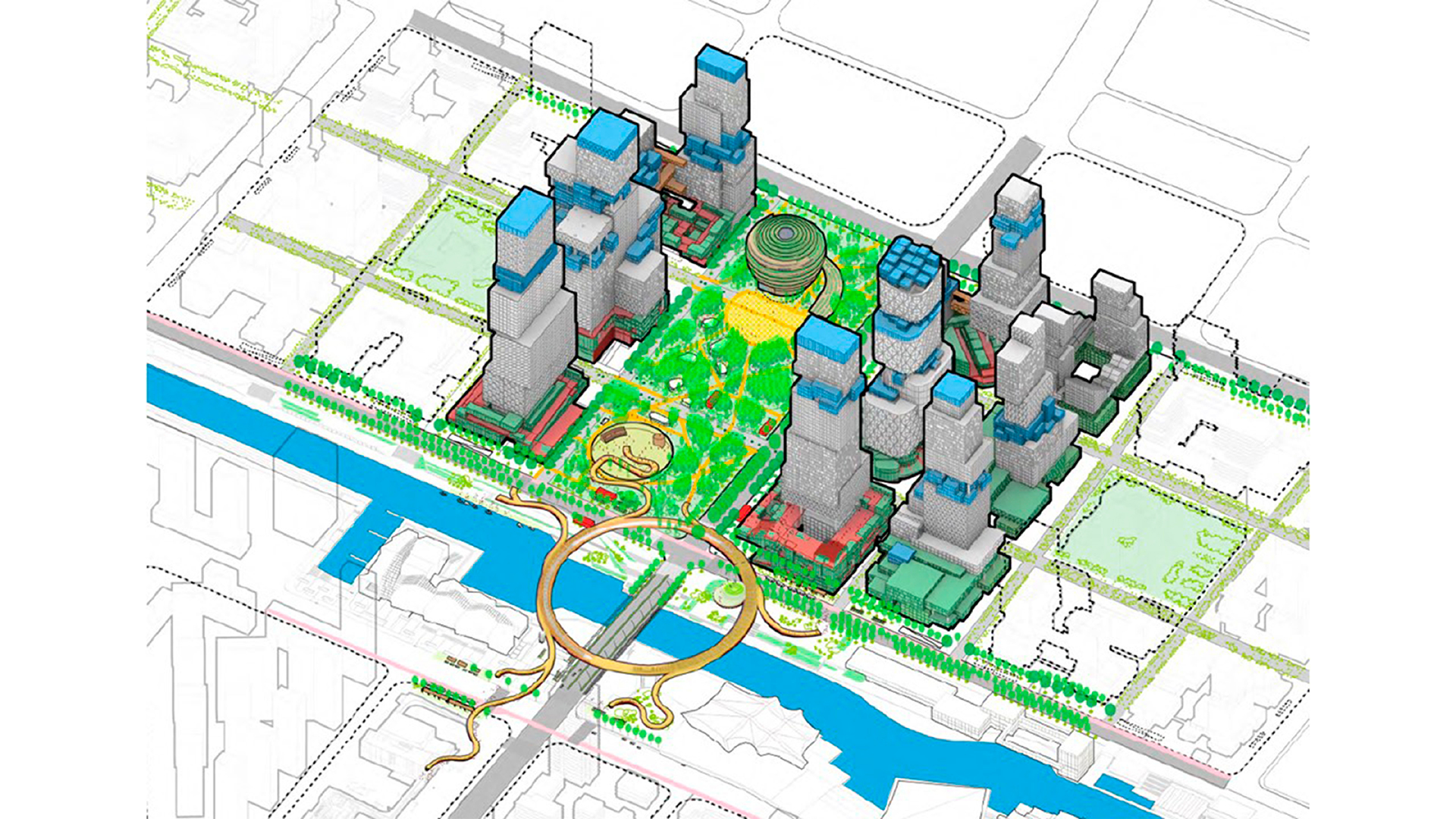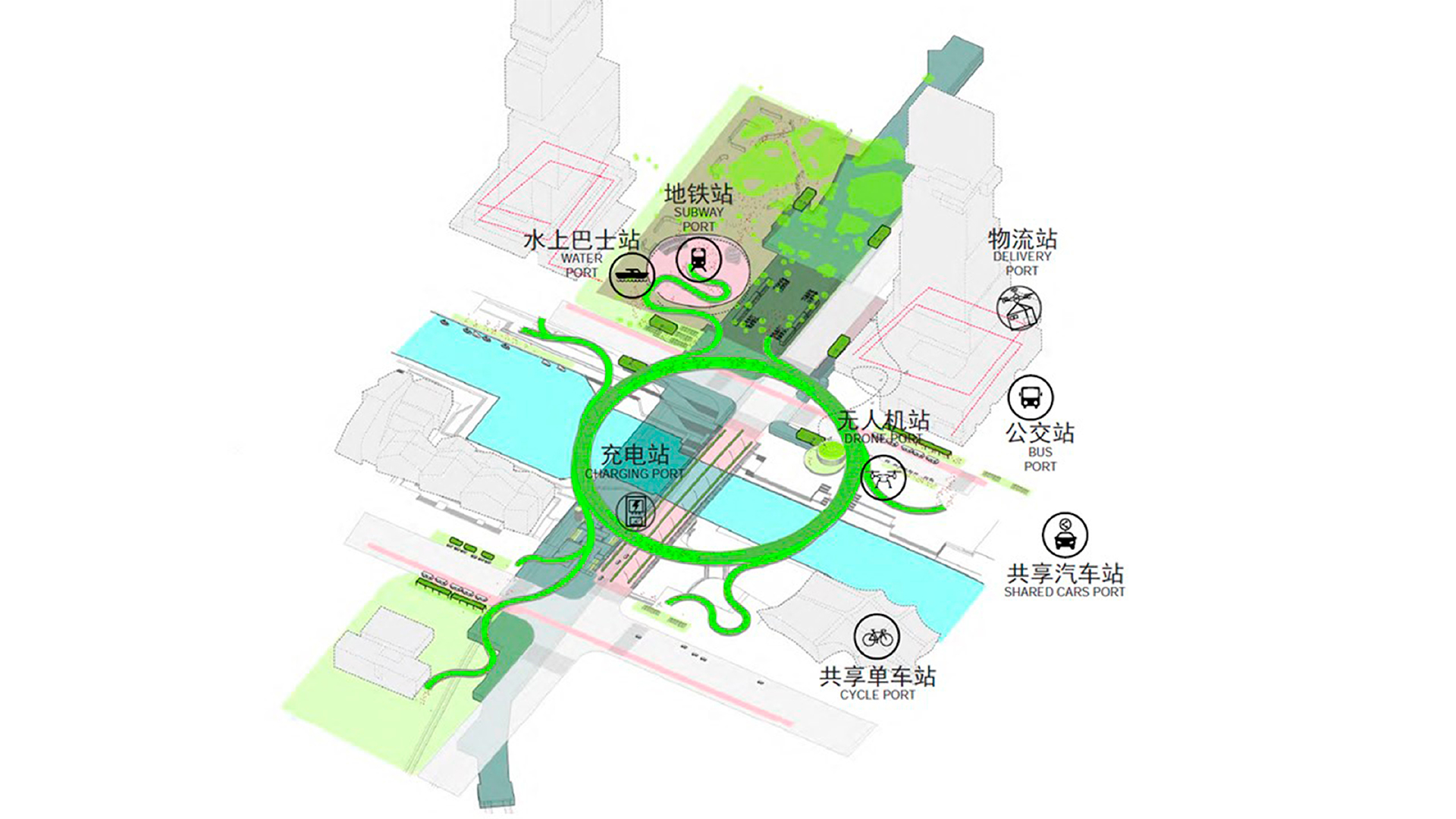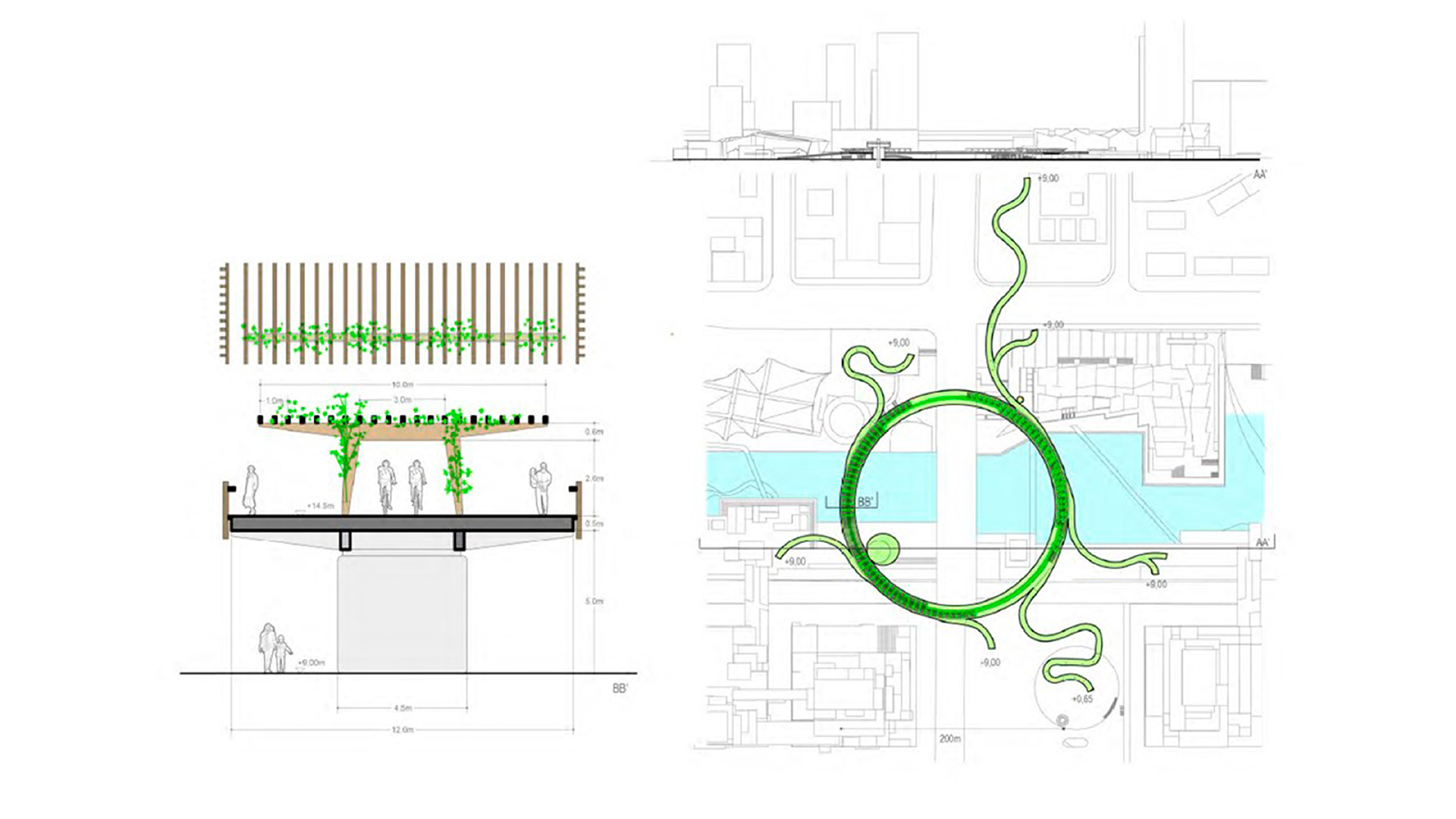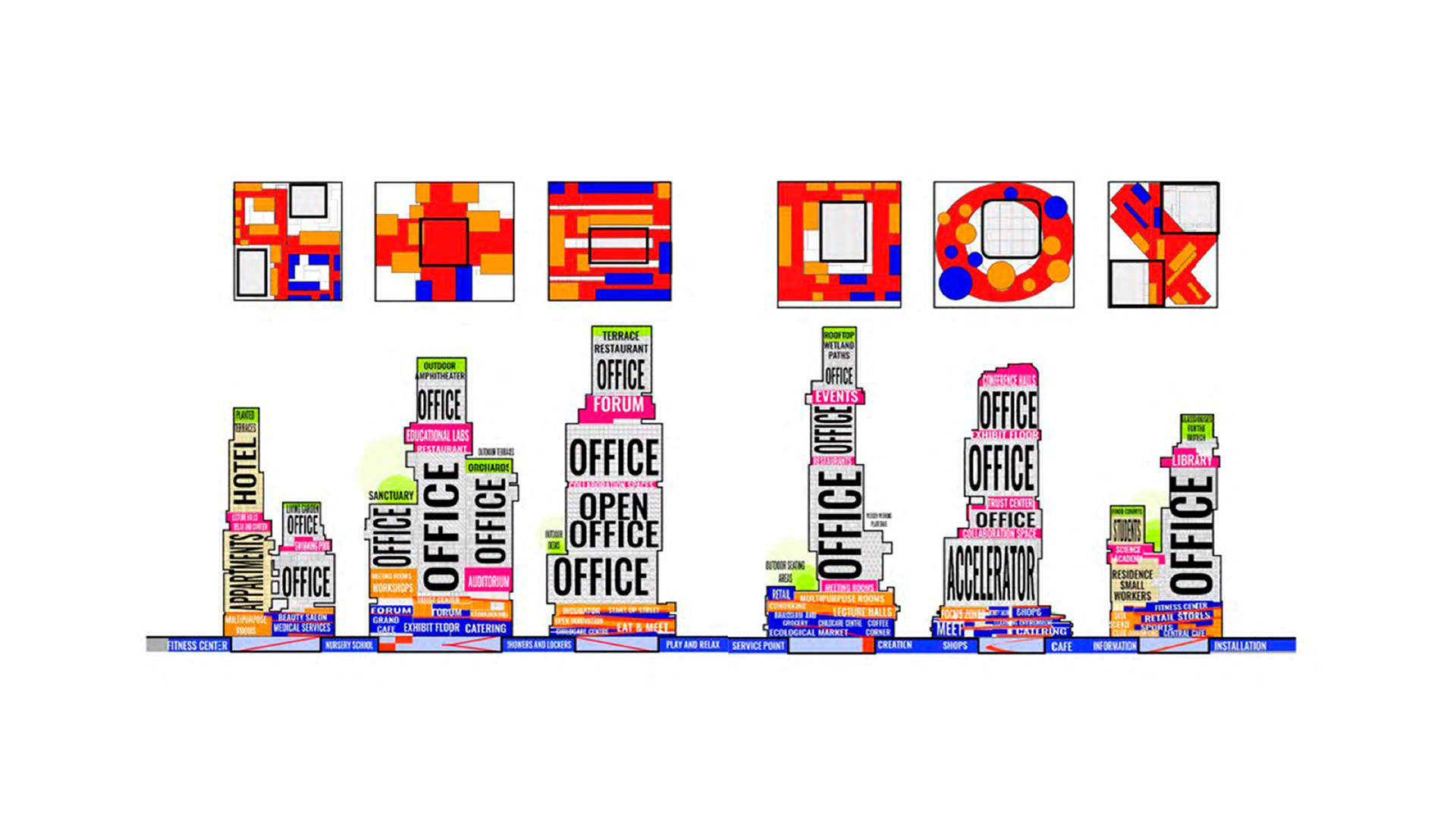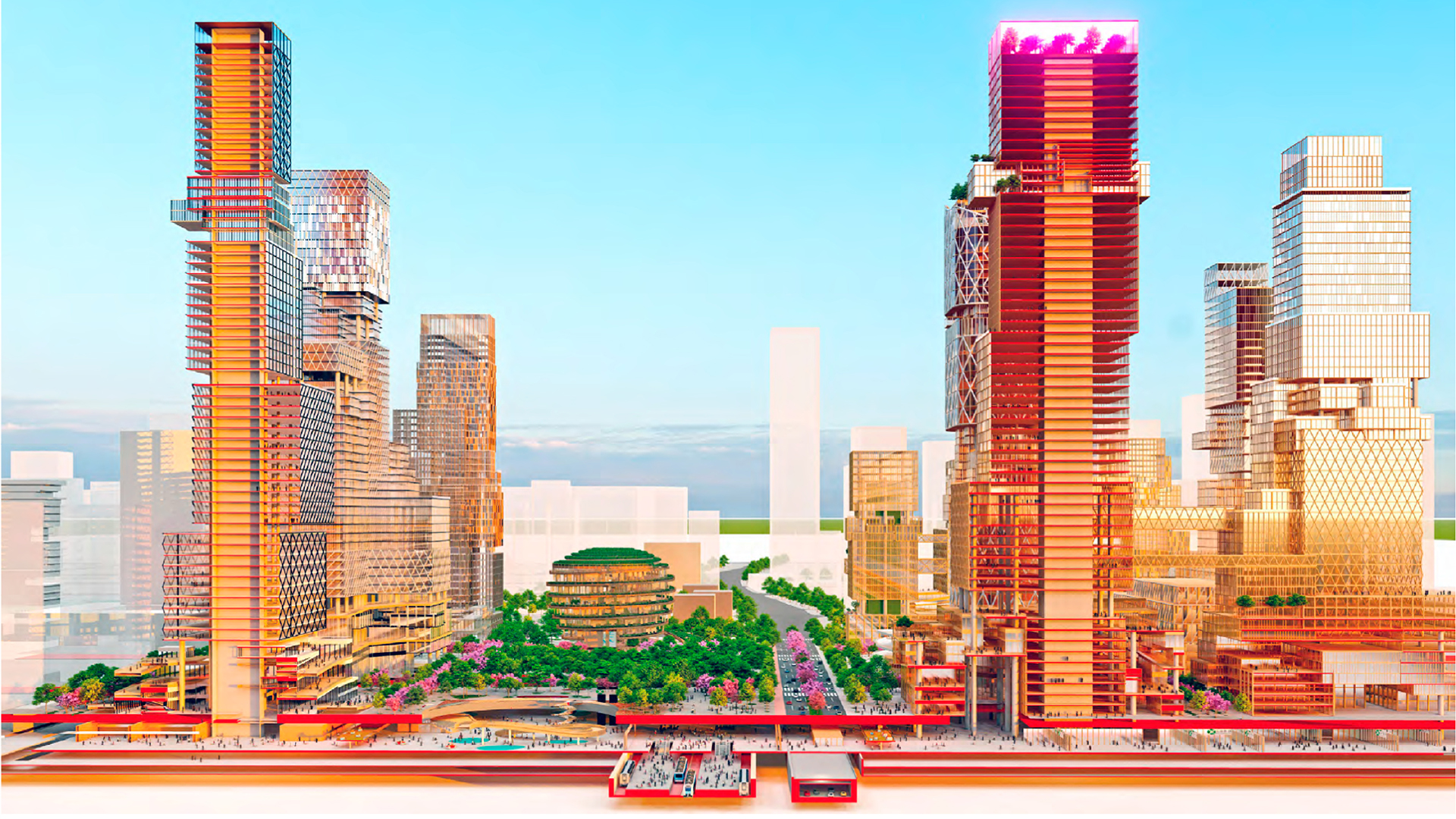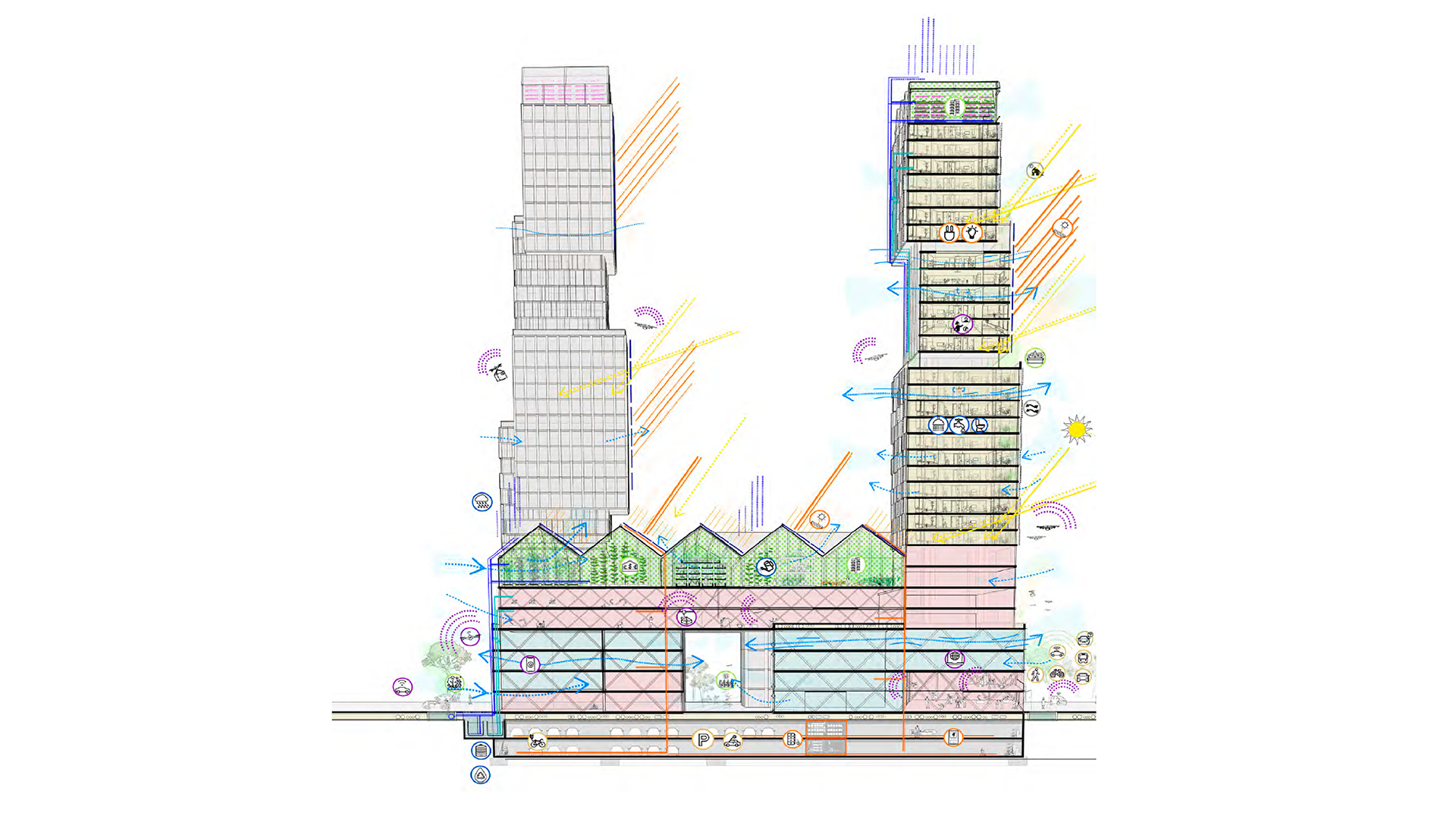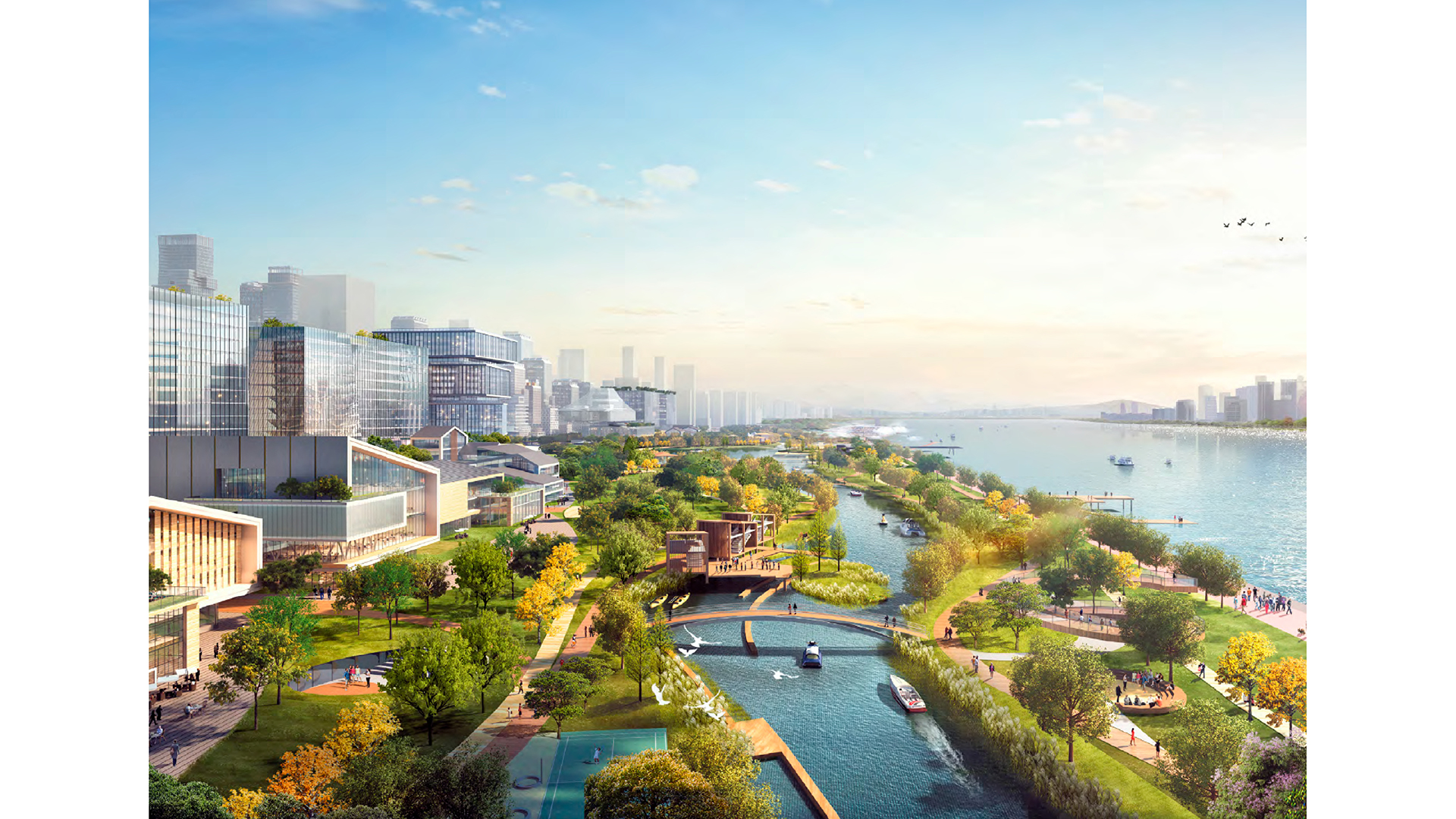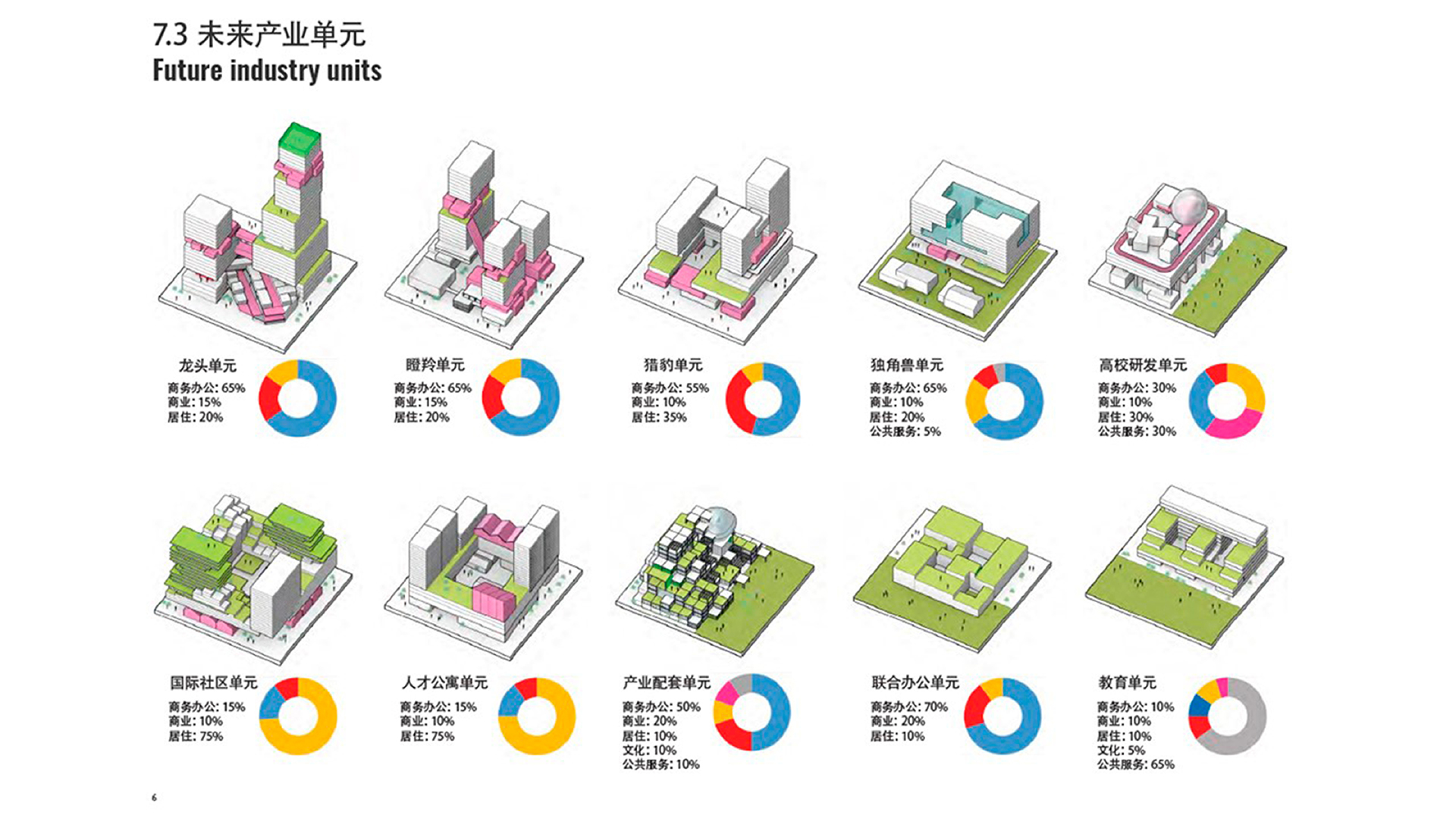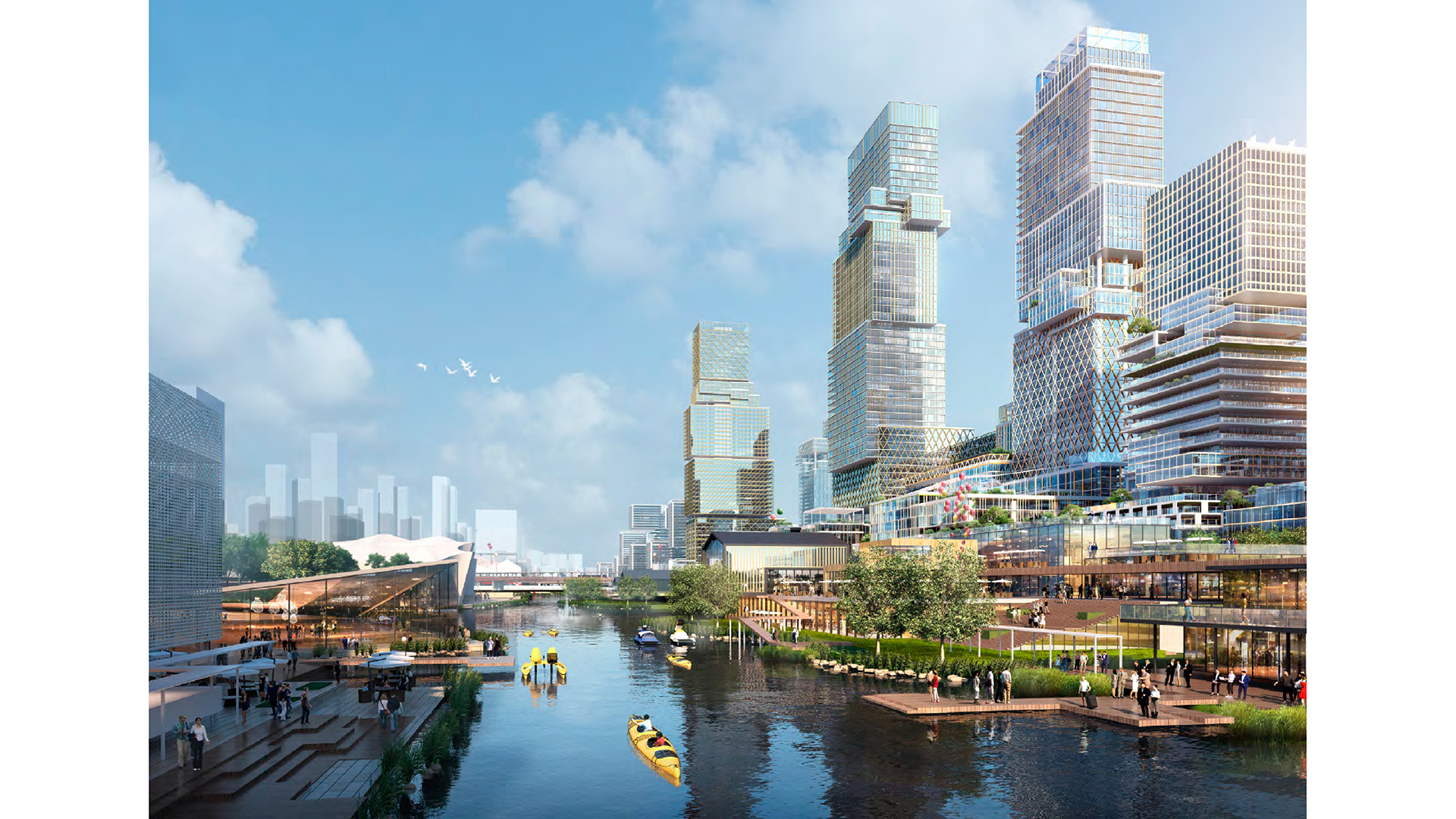Q-Link Quarters
Traditional industry is based on linear processes that involve manufacturing products in the cheapest places, shipping them around the world in containers and transforming them into waste wherever they are consumed. The new Eco digital format will promote the circular bioeconomy, bringing the production of goods closer to where they are going to be consumed and recycled, extending their useful life or giving them new lives. Cities are also part of this culture, bringing workplaces closer to where people live and producing resources locally (food, energy, objects) to create greener cities. A central headquarters (in the city center) for important meetings and events (internal and client) + a network of smaller regional offices or “spokes” closer to where employees live. The central office becomes a hybrid workplace, acting as a central nervous system for a widely distributed network of employees. In the linear economy, companies are isolated from their environment, they try to do everything they can internally. In the eco-digital circular economy, companies compete and cooperate simultaneously. Large companies want to attract talented young people, but many of them like to start their own business, which is why they develop flexible formats such as open innovation, business accelerators or other formats, where they interact between companies, between disciplines and ways of working. . Product development must be increasingly accelerated, including the entire design, prototype and marketing cycle in the same environment. Ecology is not a trend, but it is the basic guide for the economy of the future that will allow us to fight climate change and improve the lives of millions of people. For this reason, office investors believe that making green buildings is not a trend, but an obligation, to ensure the value of the investment in the medium and long term. In this way we will go from having buildings that consume energy, water and other resources, which come from outside the city, to making buildings with a circular economy, that produce energy, recycle their water and the infrastructure expenditure of the city itself.
Project Name
Q-Link Quarters
Comission
Competition
Typology
Planning
Location
Beibei, China
Program
Planning, landscape, offices, housing, public space
Year
2021
Size
900.000 m2
Client
Shenzen municipality
Team
Vicente Guallart
Honorata Grzesikowska
Elisabet Fabrega
Firas Safieddine
Marziah Zad
Yang Lei
Contractor
Partners
UPDIS (Urban planning design institute of Shenzhen)

